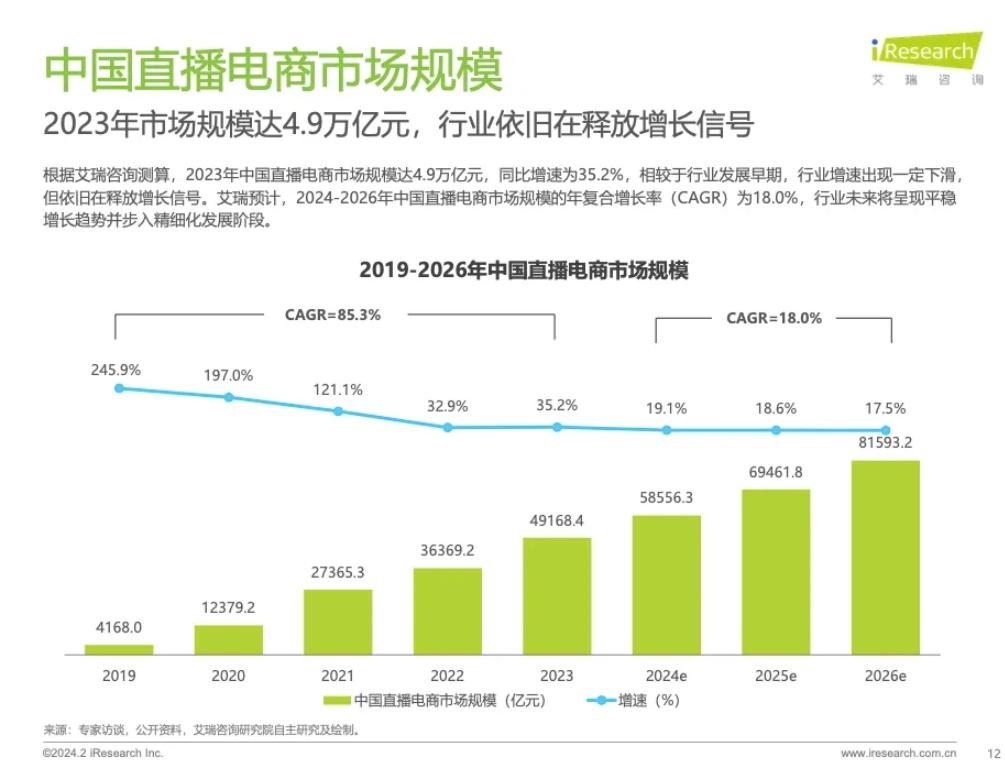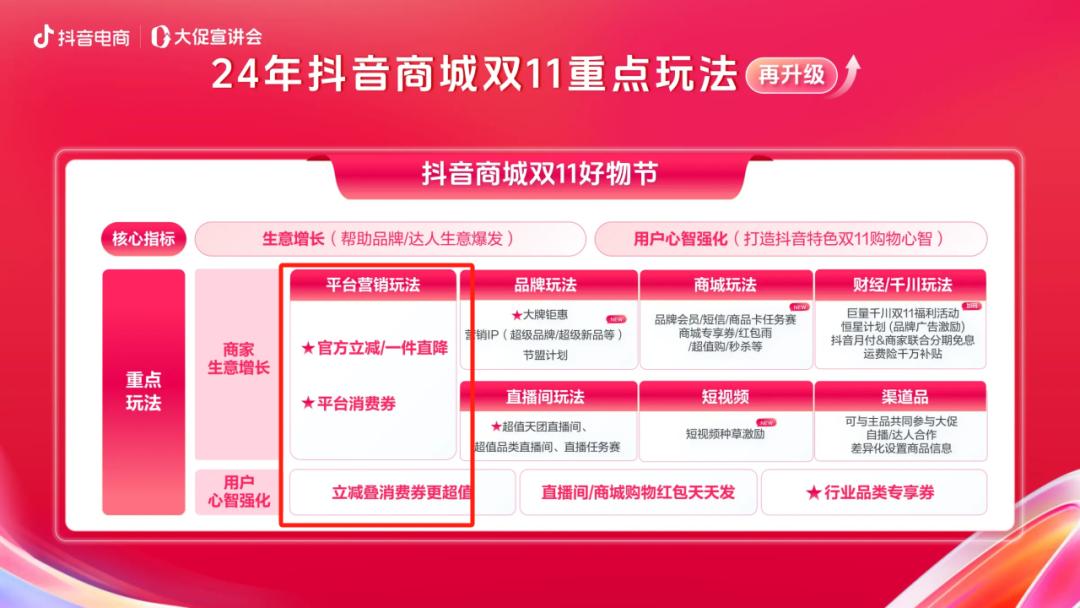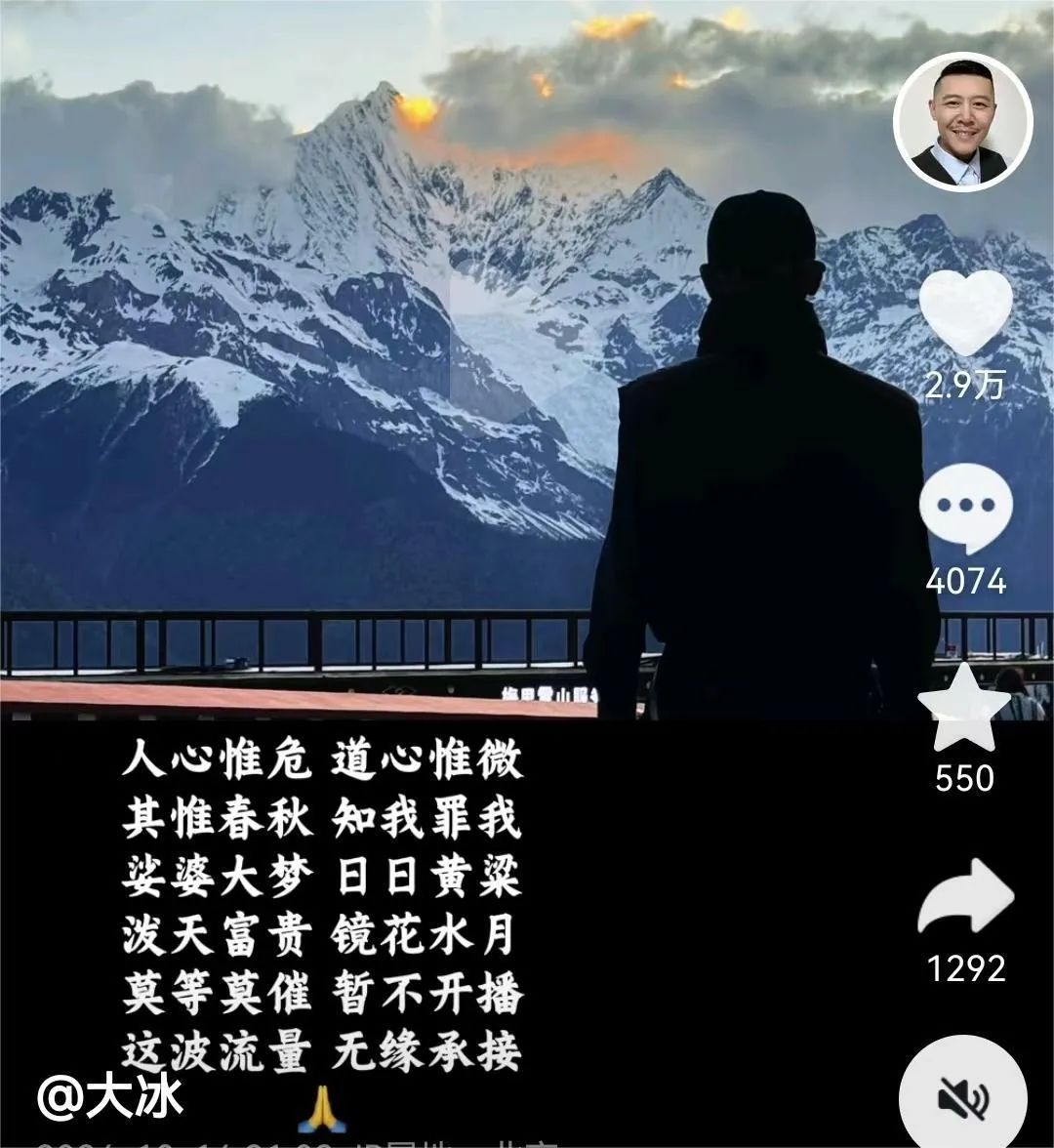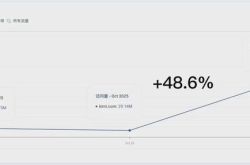Old superstars are falling one after another, while new superstars are voluntarily "cooling down". Has the relationship between Douyin's traffic and e-commerce changed?
![]() 10/22 2024
10/22 2024
![]() 509
509

In the past month, several top Douyin live-streamers encountered setbacks, and several "potential top streamers" such as K Zong, Tingquan Shangbao (formerly known as "Tingquan Jianbao"), and Da Bing were "appointed in times of crisis" to take over the traffic but subsequently suspended their broadcasts one after another, causing a series of heated news. Even Douyin users who were simply following the drama began to speculate whether Douyin would lack new superstar live-streamers to boost its Singles' Day shopping festival.
On October 17, K Zong resumed broadcasting, and Tingquan Jianbao also resumed recently, stating, "Singles' Day is coming up soon for e-commerce, and there will be events. We'll have to support them when the time comes, right?" While it's unclear whether Douyin played a mediating role in this reversal, it is evident that Douyin will not easily abandon these recently nurtured superstar live-streamers.
Of course, the "fall" of superstar live-streamers is not a new issue, and platforms likely have corresponding emergency plans to prevent disruptions to shopping festival schedules. However, as it stands, the shopping festival is coinciding with multiple new superstar live-streamers voluntarily "cooling down" and wasting traffic support, posing a new challenge for Douyin. Judging from the current situation, due to some platform characteristics and inherent mechanisms, the situation is not yet out of control.
Unlike Kuaishou's decision to bring back top live-streamer Xin Ba to bolster its Singles' Day efforts, Douyin places more emphasis on reducing its reliance on superstar influencers and live-streamers. Regardless of whether a live-streamer "falls" or suspends broadcasts, Douyin's traffic does not revolve around specific individuals but rather revolves around new "memes." The recent suspension of new top live-streamers has further highlighted this characteristic of Douyin.
01. New superstar live-streamers are not "appointed in times of crisis"
Although K Zong and Tingquan have resumed broadcasting, they are still far from carrying the banner of the shopping festival.
As of October 20, according to the latest live-streaming data from Feigua, K Zong's average live viewership reached 4.5 million per broadcast, with live sales ranging from 1 to 2.5 million yuan; Tingquan Shangbao's average live viewership reached 9.9 million per broadcast, with live sales ranging from 5 to 7.5 million yuan. While these numbers may seem impressive for new superstar live-streamers, they pale in comparison to Douyin's established superstars like "Guangdong Couple" and Jia Nailiang, who regularly attract hundreds of millions of viewers per broadcast.
This gap is even more pronounced when it comes to products with high unit prices. The average product prices for Guangdong Couple and Jia Nailiang are 300-400 yuan, while K Zong's average sales price is 10-50 yuan, and Tingquan Jianbao's is 50-100 yuan. Platform consumers still need to build trust in these new superstar live-streamers.
In other words, from an outside perspective, these rapidly rising new superstar live-streamers were specifically "nurtured" by Douyin in advance for Singles' Day. However, building a live-streamer capable of carrying the shopping festival's GMV requires more time and various methods to accumulate stickiness. Rather than being "appointed in times of crisis," the rise of these new superstar live-streamers may be closer to a regular reserve for Douyin, which just happens to coincide with the shopping festival.
If the new superstar live-streamers can carry this Singles' Day, everyone will be happy. If not, Douyin is unlikely to cede more platform discourse power just to "put a square peg in a round hole." After all, Douyin is also trying to reduce its reliance on live e-commerce.
According to iResearch's forecast data, the growth rate of China's live e-commerce market will decline significantly from 2024 onwards, stabilizing below 20%.

According to the latest report from LatePost on October 21, by the end of last year, Douyin's "shelf" sales accounted for 37% of its total sales, and this figure increased to nearly 40% during this year's 618 promotion. Douyin's shelf e-commerce value is further emerging.
Moreover, Douyin is well aware of the slowing growth in its e-commerce sector. Earlier this year, it adopted a more aggressive low-price strategy, such as allocating more traffic to low-priced products, which could affect short-term algorithm efficiency. However, "since the second quarter, the sales growth rate has fallen faster than the company expected."
In other words, against the backdrop of slowing growth in live e-commerce, coupled with the precedent of sacrificing traffic distribution efficiency failing to revive growth, Douyin's content or traffic-related departments have every reason to refuse the e-commerce sector's attempts to "strongly promote" newcomers using traffic.
In fact, regardless of whether there are superstar live-streamers capable of carrying the shopping festival, Douyin's primary focus for this shopping festival's scheduling plan is not on superstar live-streamers.
Douyin's top-level strategy this time around is a simple and straightforward "instant discount plus coupon overlay," which not only seeks celebrity endorsements to promote this slogan but also places this strategy above all other gameplay rules. This approach is clearly aimed at addressing the widespread consumer criticism of previous shopping festivals' complex full-price reduction tactics. For Douyin, live-streaming by influencers, like brand store broadcasts, short video sales, and shelf sales, is just one of many sales channels.

However, due to the continued influence of top live-streamers on other platforms, with reference to Kuaishou's Xin Ba exceeding 5 billion GMV in just six hours of resumed broadcasting and Taobao's Li Jiaqi surpassing 100 million GMV shortly after starting his Singles' Day live stream, e-commerce consumers still have an inertia towards live streaming as a purchasing channel. Whether a simple low-price strategy can work amidst the fierce competition among various platforms remains to be seen over the coming period.
At the same time, the power of public opinion cannot be ignored, and incidents involving Little Yangge and Northeast Yujie will still have some impact on Douyin's Singles' Day sales performance.
02. From people-driven sales to "meme"-driven sales
Unlike the stark contrast in average transaction volume between the old and new superstar live-streamers mentioned above, K Zong's average peak popularity reached 200,000, Tingquan Shangbao's reached 740,000, while Guangdong Couple's was 320,000 and Jia Nailiang's was 280,000. In terms of real-time popularity, which is a crucial metric, the gap between the new and old superstar live-streamers is not significant, with the former even showing signs of catching up.
This reflects the different live audiences reached by the old and new generations of top Douyin live-streamers – more people are willing to watch the antics of newcomers but prefer to make purchases from familiar and stable live-streamers, especially for products with high unit prices. This was also evident in the case of Da Bing, another "superstar" who suspended broadcasts and failed to resume.
As a best-selling author, Da Bing already had a certain level of fame, but his most famous "Da Bing Meme" also had a negative impact on his personal image. Therefore, Da Bing's live broadcasts were widely regarded as a "comeback" or a "turnaround in public opinion," and various comments he made during his live streams spread rapidly across various platforms, including Douyin, through live-stream clips.
However, on October 16, Da Bing posted on Douyin, "No broadcasts for now... This wave of traffic, I'm afraid I can't handle it." Earlier, Da Bing mentioned in his live streams that he would not engage in product sales but would not close the gift reward channel, though he would not actively ask for gifts. To some extent, this indicates that he is aware that only by bringing benefits to the platform can he reciprocate the traffic distributed by the platform.

Although Da Bing has not resumed broadcasting, he continues to contribute to the platform's revenue. New live-stream clips are constantly being produced to enhance platform user stickiness, and marketing accounts that create these clips also display product links on their homepages for sales. Although individual clips may not generate as much revenue as professional product sales bloggers, the sheer number of "live-stream clip accounts" cannot be ignored, and they remain a popular choice for many aspiring self-media creators.
For both K Zong, Tingquan Shangbao, as well as Wei Xue, Zheng Yanzhi, and even Ye Ke, the accumulation of traffic often relies on live-stream clips featuring the highlights of their broadcasts when they first became popular. The format of live-stream clips aligns well with Douyin's further need to balance content and live e-commerce.
Live streaming, which demands more improvisational skills, often appears more authentic and impactful than pre-planned videos. Live-stream clips capture and disseminate the most compelling moments of live streams, which can be distributed to platform users anytime, anywhere, without the time constraints of live broadcasts. This format can also cultivate users who do not regularly watch live streams, driving traffic to Douyin's live-streaming section. At the same time, it does not compromise the platform's content fun and user engagement. After all, metrics such as user stickiness and monthly active users are the bottom line that Douyin has always upheld.
In this content landscape, based on most internet events, traffic distribution is no longer solely centered around the so-called "meme creators," i.e., the original producers of content materials, but rather around the disseminators of content. At this point, the center of content is no longer people but "memes."
A "meme" is essentially a compressed version of a popular ideology at a given time. The "Da Bing Meme" itself is a meme, and key live-stream clips from Tingquan Shangbao have also become a meme used by users for entertainment. The saying "traffic creates gods and destroys them" no longer accurately describes the current relationship between people and traffic. There has always been an intermediate state that benefits all parties between people and traffic. Whoever can create "memes" that resonate with more people will temporarily gain traffic and the opportunity to monetize it, with people themselves becoming one of the materials. Going forward, content platforms will only place increasing importance on the dissemination of "memes."
For live e-commerce and even content e-commerce as a whole, the IP effect of individuals will become more refined. After all, "memes" are singular and can accommodate more people who identify with or participate in them. In contrast, people are multifaceted, and the more refined the audience, the more they can accept the multifaceted nature that influencers or celebrities exhibit over time.
03. Final Thoughts
In fact, Douyin's original content logic revolved around "memes," which were then called "challenges." Various transition challenges, contrast challenges, etc., could all be seen as memes for mass entertainment, and "playing with memes" was precisely the moat that differentiated short video platforms from other content platforms.
Another example is K Zong's well-known catchphrase: "Spending money on men is unlucky for life, but it's okay, you spend it on me, I'm a sissy" and "What should I do if it's too cheap? How do I respond? It's because you're working too hard." These are all memes, and K Zong has leveraged these catchphrases to further accumulate traffic.
From an audience analysis perspective, K Zong is a master of "monetizing memes" for the platform, targeting young women as the primary consumer group and differentiating himself from Taobao's Li Jiaqi. Douyin cannot afford to ignore him.
However, for Douyin, a continuous flow of memes and a revolving door of superstar live-streamers is the ideal state. In the long run, Douyin is one of the content platforms least reliant on superstar live-streamers. Nevertheless, given the current situation, Douyin still lacks a strong fulcrum for this Singles' Day, and the danger of "drinking poison to quench thirst" remains.
*The cover image and illustrations in the article are sourced from the internet.







